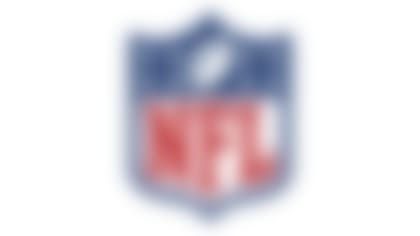A Pennsylvania prosecutor said Monday that his investigation into the fatal heroin overdose of Garrett Reid, the oldest son of Philadelphia Eagles coach Andy Reid, revealed there were steroids in his room the day he died.
Northampton County District Attorney John Morganelli said Monday that anabolic steroids were found in the room where Garrett Reid was staying when he overdosed on heroin Aug. 5 during Eagles training camp.
He said there was no evidence that Reid was giving the steroids to any Eagles players and that investigators could not determine if the drugs were for Reid's own use or for distribution.
Morganelli also said that steroids had nothing to do with Reid's death.
Exercise and training had become his passion and he aspired to make it a career. At the time of his death, he had been helping strength and conditioning coach Barry Rubin.
"As you all know, my son Garrett battled addiction for many years. While there were some victories along the way, it ultimately was a battle that he lost and that cost him his life," Reid said in a statement Monday. "Our family feels the pain of that loss every day.
"Today's report saddens me greatly, but only confirms the troubles Garrett encountered in the final years of his life. As parents, we were encouraged by his apparent progress but, like many addicts, he was able to conceal the signs of relapse.
"Jeffrey Lurie, the Eagles organization and the people of Philadelphia have been remarkably supportive of my family throughout our ordeal. I am confident that my son's decisions did not affect our football team in any way. I cannot apologize enough for any adverse appearances that my son's actions may have for an organization and a community that has been nothing but supportive of our family."
Garrett Reid's body was found in his dorm room at Lehigh University in Bethlehem, where he was assisting the team's strength and conditioning coach. A coroner said the 29-year-old died of an accidental heroin overdose.
Lehigh University police were called to Reid's dorm room around 7:20 a.m. on Aug. 5, arriving after Eagles team physician Dr. Omar Elkhamra had tried to revive him with a defibrillator.
Investigators searching his dorm room found a used syringe and spoon in his room, along with a gym bag filled with dozens of syringes and needles, many of them unopened, as well as 19 vials of an unknown liquid that was to undergo testing.
"The news today on Garrett Reid's possession of steroids is disappointing," Lurie said in a statement. "It's clear the conduct in which he apparently engaged runs counter to the values and principles mandated for everyone associated with our organization. We have spoken with the league office and have pledged our full cooperation with their requests should there be any. While we remained saddened by the tragic end of a young man's life and know how hard this must be for the entire Reid family, we are extremely confident that Garrett's actions were unknown to those around him and did not involve our football team.
"The NFL has a rigorous drug testing program for its players. It is a matter of record that none of our players has tested positive for any of the steroids mentioned in the district attorney's report."
NFL spokesman Greg Aiello acknowledged the discovery of steroids in Reid's dorm room.
"We are aware of the information and will follow up as appropriate," he said.
The Associated Press contributed to this report.











